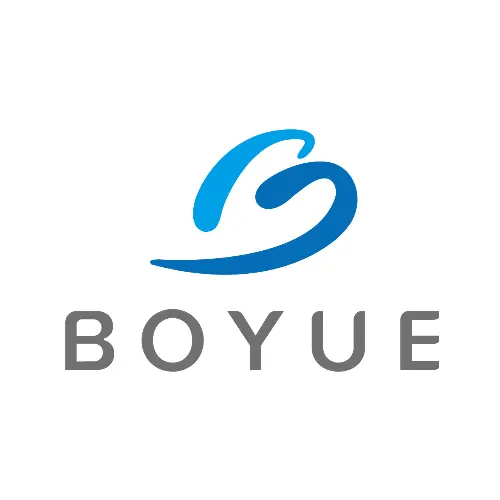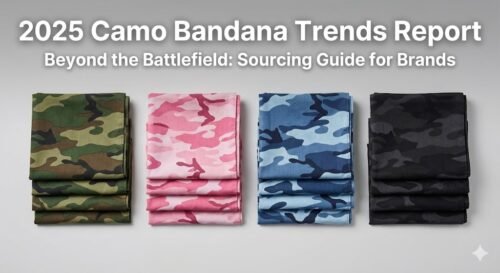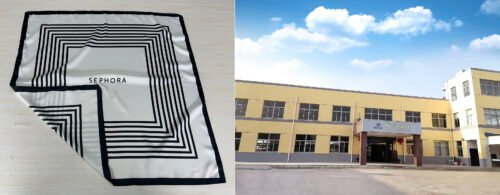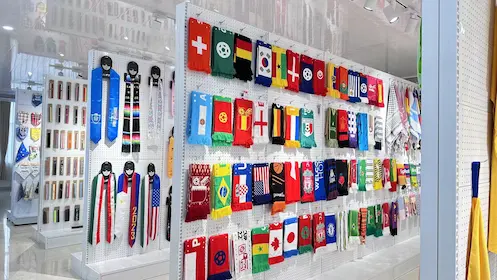Trička Jsou jedním z nejzákladnějších a nejvšestrannějších oděvních prvků pro každodenní nošení a téměř každý se bez nich neobejde. Trička vyrobená z různých materiálů se však značně liší v pohodlí, odolnosti a ceně. Výběr správného materiálu trička ovlivňuje nejen zážitek z nošení, ale také určuje životnost a vhodné scénáře použití oblečení.
Na trhu existují různé druhy látek na trička, jako je bavlna, polyester, směsová atd. Každá z nich má své jedinečné vlastnosti, výhody a nevýhody. Pochopení těchto typů látek na trička nám pomůže činit vhodnější rozhodnutí podle našich potřeb.
Tento článek vás seznámí s běžnými materiály triček, analyzuje jejich vlastnosti a naučí vás, jak si vybrat nejvhodnější látku na trička (jak vybrat látku na trička). Pomůže vám najít tu, která vám skutečně vyhovuje, ať už se jedná o každodenní nošení nebo zakázkové použití, s čímž si snadno poradíte.
Obsah
PřepnoutDruhy látek na trička
1. Bavlněné tričkoBavlna je nejběžnější a nejoblíbenější látkou na trička. Je to přírodní vlákno s měkkým omakem, dobrou prodyšností, příjemným na dotek a příjemným pocitem. Je vysoce hygroskopické, pohodlné a šetrné k životnímu prostředí, ale snadno se smršťuje, mačká a deformuje. Splňuje potřeby každodenního nošení a je relativně pohodlná na nošení.
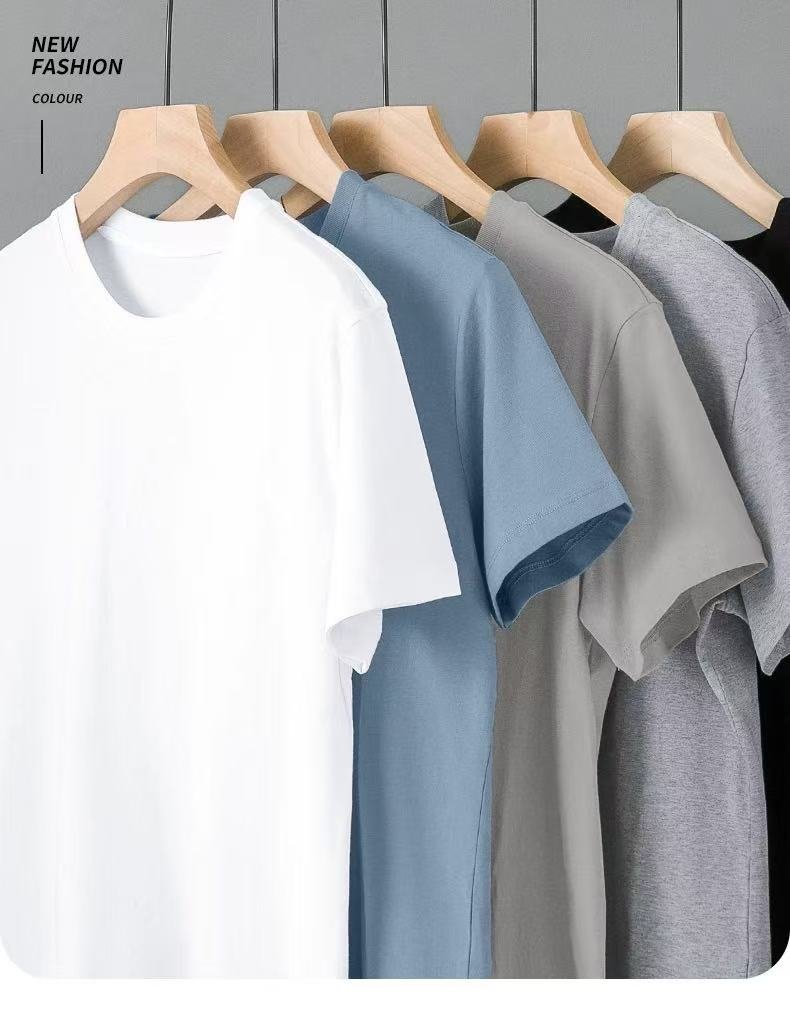
2. Tričko z česané bavlny
Na základě běžné bavlny se nečistoty z krátkých vláken odstraňují česáním, čímž se látka stává jemnější a hladší. Tato látka je měkčí, méně náchylná k žmolkování a má lepší texturu, ale cena je o něco vyšší než u bavlny. Pokud máte vyšší nároky na nošení, můžete si vybrat tuto látku.
3. Tričko z polyesterové tkaniny
Jedná se o syntetickou vláknitou tkaninu s dobrou odolností proti opotřebení a mačkavosti. Často se používá ve sportovním oblečení nebo reklamních tričkách. Tato tkanina je odolná, nedeformuje se a má nízkou cenu, ale není prodyšná, náchylná ke statické elektřině a má tvrdý omak. Je vhodná pro skupinové úpravy a funkční oděvy.
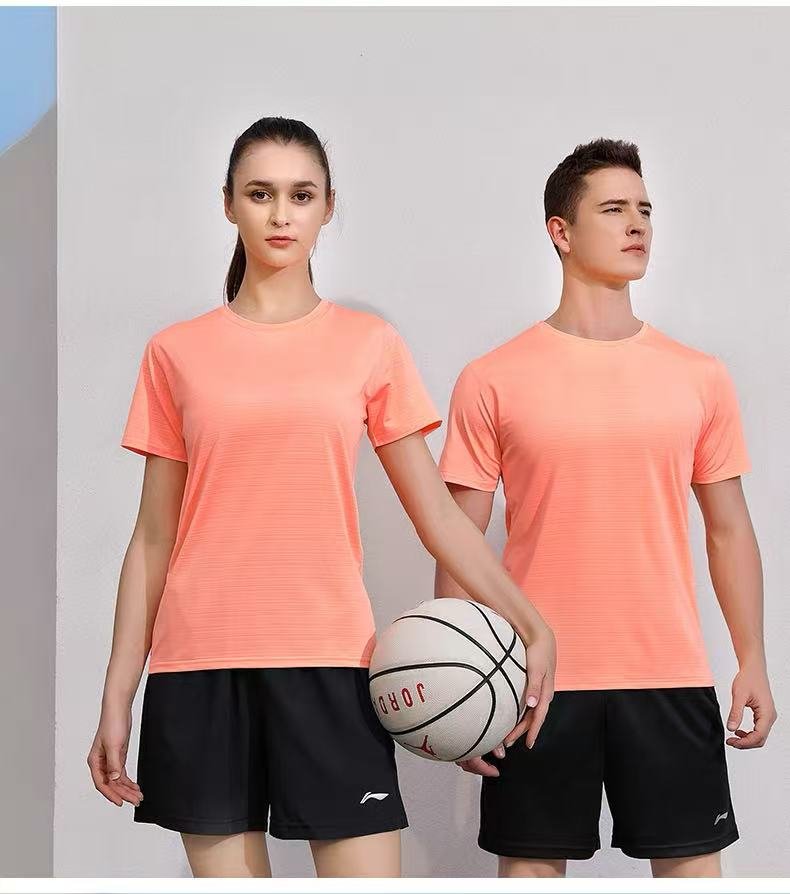
4. Tričko ze směsi bavlny a polyesteru:
Bavlna a polyester jsou smíchány v poměru, který v sobě spojuje výhody obou materiálů, což představuje cenově dostupnou volbu. Materiál je pohodlný, odolný, nemačkavý a má střední cenu, ale jeho absorpce vlhkosti není tak dobrá jako u čisté bavlny, takže je vhodný pro studentské uniformy, pracovní oděvy a reklamní dárky.
5. Tričko z organické bavlny
Během procesu pěstování se nepoužívají žádné chemické pesticidy ani hnojiva, což je šetrné k lidskému tělu i životnímu prostředí. Tato tkanina neobsahuje žádné chemické zbytky, je šetrná k životnímu prostředí a vhodná pro citlivou pokožku, ale produkce je malá a cena vysoká, takže je vhodná pro ochránce životního prostředí a spotřebitele mateřských a dětských produktů.
6. Tričko z bambusových vláken
Vyrobeno z bambusového vlákna, je přirozeně antibakteriální a má vynikající vlastnosti pro absorpci vlhkosti a odvod potu. Tato tkanina je antibakteriální, savá a je z obnovitelného zdroje, ale některé produkty mohou obsahovat chemické ošetření, takže je vhodná pro letní nošení a lidi se zdravým životním stylem.
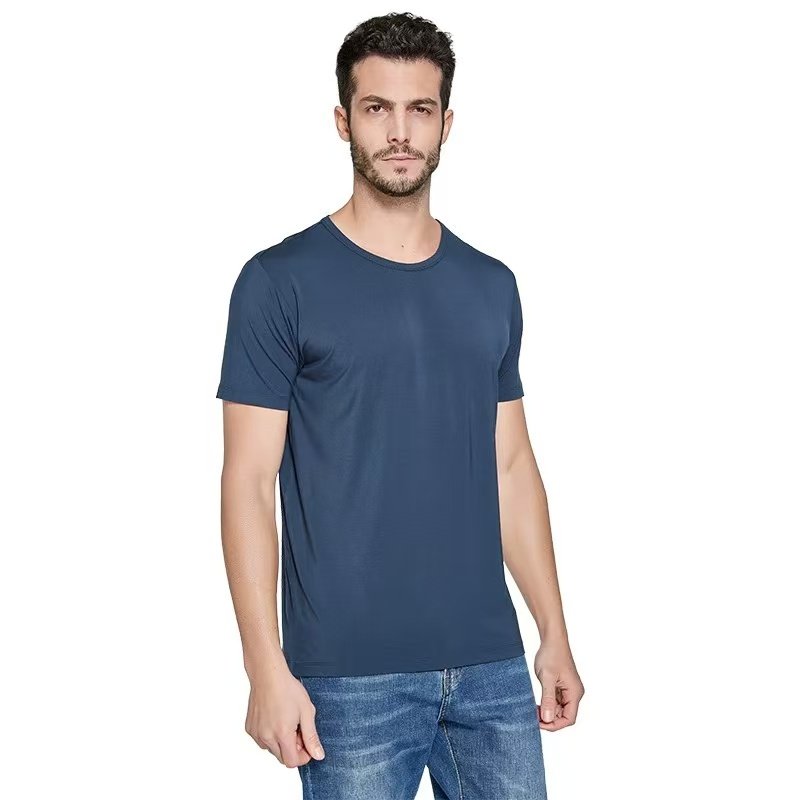
7. Tričko z tencelu/lyocelu
Regenerované vlákno vyrobené z dřevní buničiny, s ekologickým výrobním procesem a hedvábným dotekem. Výhodami této tkaniny jsou měkkost, prodyšnost a udržitelnost, ale cena je vysoká, takže je vhodná pro luxusní módní značky a ekologicky šetrné spotřebitelské skupiny.
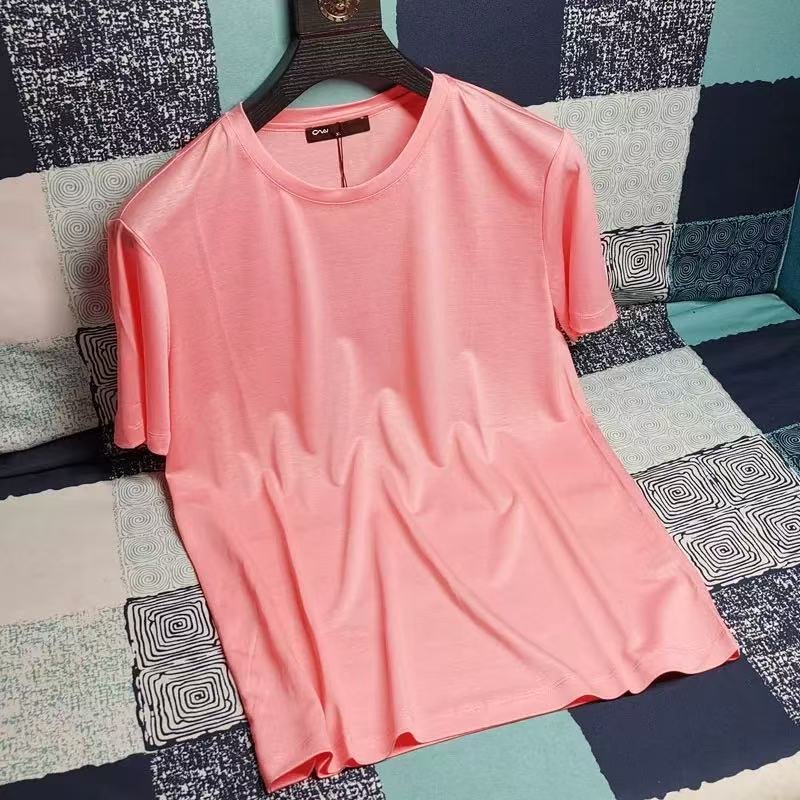
Jak vybrat správný materiál na tričko
Vyberte podle účelu
Denní nošení: Doporučuje se používat bavlnu, česanou bavlnu nebo bambusové vlákno, které je pohodlné a šetrné k pokožce a vhodné pro dlouhodobé nošení.
Sport a fitness: Doporučuje se volit polyesterové nebo funkční směsové tkaniny, které mají vlastnosti absorpce vlhkosti a potu, rychle schnou a jsou odolné proti mačkání.
Pracovní oděvy/uniformy: Směsi bavlny a polyesteru jsou ideální s ohledem na odolnost a pohodlí a vhodné pro časté praní.
Reklamní dárky: Polyesterové nebo běžné bavlněné materiály s vysokými náklady a výkonem jsou vhodnější pro hromadné úpravy.
Vyberte podle ročního období
Prodyšnost a tloušťka látky přímo ovlivňují zážitek z nošení, proto je nutné vybírat podle sezónních změn:
Letní lehký a tenký styl: Preferuje se čistá bavlna, bambusové vlákno nebo tkaniny Tencel, které jsou vysoce prodyšné, chladivé a pohodlné.
Zimní teplý styl: Pro zlepšení hřejivého efektu lze zvolit zesílené materiály z bavlny, flanelu nebo vlny.
Vyberte si podle rozpočtu
Cena látky se značně liší a rozumná kontrola rozpočtu pomáhá dosáhnout nákladově efektivního nákupu:
Ekonomická volba: Polyester, běžná bavlna, cenově dostupné, vhodné pro hromadné nákupy a krátkodobé použití.
Luxusní možnosti: prstencově předená bavlna, organická bavlna, Tencel atd., s lepší texturou, vhodné pro branding nebo dlouhodobé nošení
Vyberte si podle potřeb ochrany životního prostředí
S popularizací udržitelných konceptů se stále více spotřebitelů obává, zda je látka šetrná k životnímu prostředí:
Organické materiály: jako je organická bavlna, bambusové vlákno, Tencel atd., výrobní proces je bez znečištění a vhodný pro ekology.
Recyklovatelné materiály: Některé polyesterové tkaniny jsou vyrobeny z recyklovaných plastů, což snižuje emise uhlíku a je šetrné k životnímu prostředí a odolné.
Díky analýze výše uvedených čtyř aspektů si můžete konkrétněji vybrat látky na trička, které vyhovují vašim potřebám. Ať už kupujete pro sebe, upravujete oblečení pro svůj tým nebo vytváříte značkové oblečení, najdete tu nejvhodnější volbu.
Klíčové faktory, které je třeba zvážit při výběru látky
Při výběru správné látky na trička nebo oblečení na míru je důležité zhodnotit několik klíčových výkonnostních faktorů, které ovlivňují pohodlí, odolnost a celkovou kvalitu.
Prodyšnost
Prodyšnost se týká toho, jak dobře látka propouští vzduch a odvádí vlhkost. Bavlna, bambus a Tencel jsou vysoce prodyšné, takže jsou ideální pro teplé počasí a aktivní nošení.
Úsek
Pružnost je schopnost látky se roztáhnout a vrátit do původního tvaru. Látky s přídavkem spandexu nebo elastanu nabízejí větší flexibilitu, což je skvělé pro sportovní oblečení nebo přiléhavé střihy.
Hmotnost nebo GSM (gramy na metr čtvereční)
GSM udává tloušťku látky. Nižší GSM (120–160 g/m²) znamená lehčí a měkčí látku vhodnou pro letní trička, zatímco vyšší GSM (180–220 g/m²) nabízí těžší a odolnější materiál, který je preferován pro prémiová nebo dlouhotrvající trička.
Odolnost proti vráskám
To se týká toho, jak dobře látka odolává mačkání. Syntetické látky, jako je polyester a směsi, bývají odolnější vůči mačkání než přírodní vlákna, jako je bavlna, což z nich činí lepší volbu pro cestování nebo pracovní oblečení.
Kompatibilita s tiskem
Některé látky absorbují inkoust lépe než jiné. Pro sítotisk nebo DTG (přímý tisk na oděv) poskytují nejlepší výsledky bavlna a bavlněné směsi. Polyester může vyžadovat speciální inkousty nebo procesy, aby byly zajištěny vysoce kvalitní a trvanlivé tisky.
Závěr
Různé látky jsou vhodné pro různé scénáře: bavlna a bambusové vlákno jsou vhodné pro každodenní nošení, polyester a směsové látky jsou vhodnější pro sportovní a reklamní účely, zatímco organická bavlna a Tencel jsou oblíbenější mezi ekologickými spotřebiteli.
Při výběru látek na trička byste měli zvážit nejen pohodlí a vzhled, ale také zkombinovat rozpočet a praktické využití, abyste našli nejvhodnější variantu.
Doufám, že se na základě svých vlastních potřeb budete moci moudřeji rozhodnout. Ať už jde o vlastní použití, úpravu na míru nebo rozvoj značky, správná látka může přinést lepší zážitek z nošení a hodnotu.
Doufám, že vám výše uvedené informace pomohou lépe porozumět výběru látek na trička. Pokud máte jakékoli potřeby úprav, ať už se jedná o styl, barvu nebo potisk, jako jsou exkluzivní vzory, firemní LOGO, skupinové oblečení atd., můžeme vám poskytnout profesionální podporu. Neváhejte nás kdykoli kontaktovat a začněte s exkluzivní úpravou trička!
FAQ
1. Jaký materiál se používá na trička?
Mezi běžné materiály patří bavlna, polyester, směsi bavlny a polyesteru, organická bavlna, bambusová tkanina, Tencel a prstencově předená bavlna.
2. Jaká je nejlepší látka na tričko?
Výběr nejlepší látky závisí na použití, ale česaná nebo prstencově předená bavlna nabízí nejlepší rovnováhu mezi pohodlím a kvalitou.
3. Jaké je nejlepší tričko pro sítotisk?
Bavlněné nebo nízkopolyesterové směsi 100% jsou ideální pro sítotisk díky lepší absorpci inkoustu a čistotě tisku.
4. Jaké jsou suroviny pro potisk triček?
Mezi materiály patří látka (bavlna/polyester), inkousty (plastisolové, na vodní bázi, výbojkové), síta, šablony a zařízení pro vytvrzování teplem.
